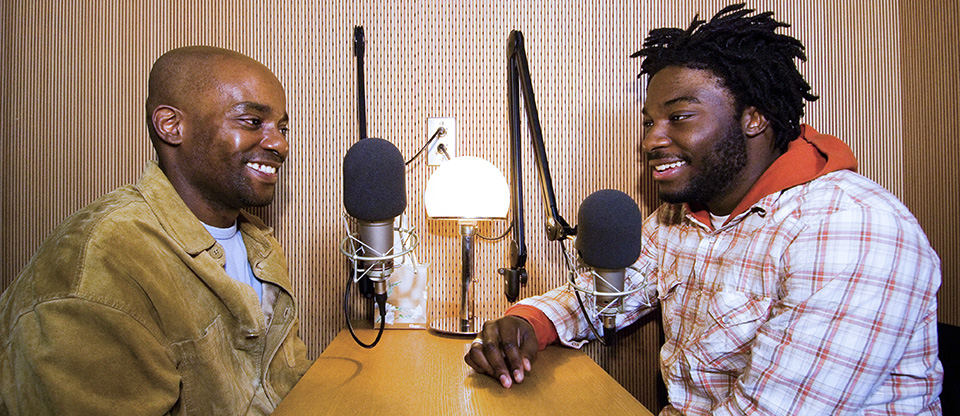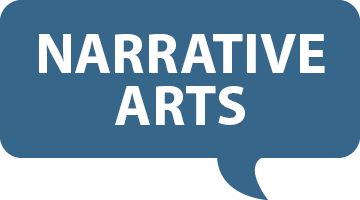How can we elicit good stories from an interview?

Photo Credit: StoryCorps
You’ve got a chance to interview a stakeholder, and you may have just this one chance. How do you make the most of your time together?
BEFORE THE INTERVIEW
Determine your goal. Identify your goals for the story, such as “to show the human impact of this policy issue” or “to celebrate our organization at the annual fundraising gala.” Your purpose will drive the questions you ask and the interviewees you choose.
Find the best interviewee(s). Do brief “pre-interviews” on the phone or through video conferencing to identify the best candidate(s). The pre-interview should yield only an outline of the person’s story, a sense of how they articulate their experience and a few areas for future exploration. Don’t let the pre-interview go on too long, otherwise the full interview will sound stale. Set expectations by telling pre-interviewees that you’re interested in learning more about their experience for a possible story but haven’t yet decided on subjects.
Prepare questions. Based on what you know about the interviewee, write down the arc of her story and prepare questions you have about each part. Have a plan B if certain areas prove to be fruitless or too sensitive. Preparing questions to guide the interview shows respect for the interviewee’s time and story.
Give full information to your interviewee. Once you’ve decided on your interviewee(s), tell him about the purpose of the interview, how it will be used, and if he’ll have a chance to review a draft. Your interviewee will want a good story just as much as you do, and stating the context up front gives him the opportunity to focus on the most interesting areas.
DURING THE INTERVIEW
Solicit stories and feelings. Ask short questions like “How did you feel about…?” or “Tell me about a time when…,” and give the interviewee some breathing room. If your interviewee expresses an opinion, ask for the story behind it with a question such as “What experience made you come to that opinion?” That’s not to say that opinions, or at least analysis, should be excised entirely from your stories. Radio host Ira Glass of This American Life says that the best stories on his show alternate between action (what happened) and reflection (what the person learned from the experience or how she feels about it).
Listen. Listening carefully will allow you to follow whatever interesting stories or ideas present themselves. In order to free your mind up for listening, prepare well for the interview. It can be hard to listen if you’re worried about what question to ask next or how you appear to your interviewee. Indicate that you’re listening by nodding your head, responding with facial expressions, or summarizing what she just said and asking questions to make sure you understood correctly. Listening closely leaves you open to surprises. If there’s something you’re curious about, ask. If some emotion comes up, follow it. Don’t rely strictly on whatever questions you may have prepared in advance.
Guide your interviewee. For obvious ethical reasons, you should not “coach” your interviewee to lie or express a particular point of view. But you can help your interviewee tell her story by providing guidance. If you are confused by some terminology or what’s happening in the story, ask her to explain or rephrase. Or if she tells her story out of order or goes on long digressions, ask her to clarify or go in chronological order. You are a proxy for the audience; they rarely know as much as you do, so ask questions that they would ask—even if the answers seem self-evident to you.
Display the kind of openness you’re looking for. Imagine how it might feel to submit to an interview. Someone you know little or nothing about comes in, asks you personal questions, maybe hopes that you’ll cry or otherwise give him “good material,” and runs off to write your story for who knows what audience, perhaps making errors and misinterpretations that would make you squirm. As an interviewer you might tell a story about yourself or show some genuine emotion; this can give the interviewee a basis for trusting you.
AFTER THE INTERVIEW
Follow up with information. Write or call the interviewee to thank her again for sharing the story and to check in about how she’s feeling. Let her know what to expect, such as when the story will run or if you’ll be back in touch with other questions.
Give the interviewee a chance to edit, within reason. Unless there’s a good reason not to, give your interviewee the opportunity to review the story for factual accuracy and the impression they created. Expectations are important here—you might not want to give the interviewee license to rewrite the piece or change its direction—but giving her a chance to provide input shows respect for her time and her story.
Further exploration:
- “Don’t Be Afraid to Ask Dumb Questions,” interview tips from radio and podcast producer Alex Blumberg, and his Creative Live class “Power Your Podcast With Storytelling.”
- “On how I approach strangers on the street,” Humans of New York creator Brandon Stanton talks about his interview method.
